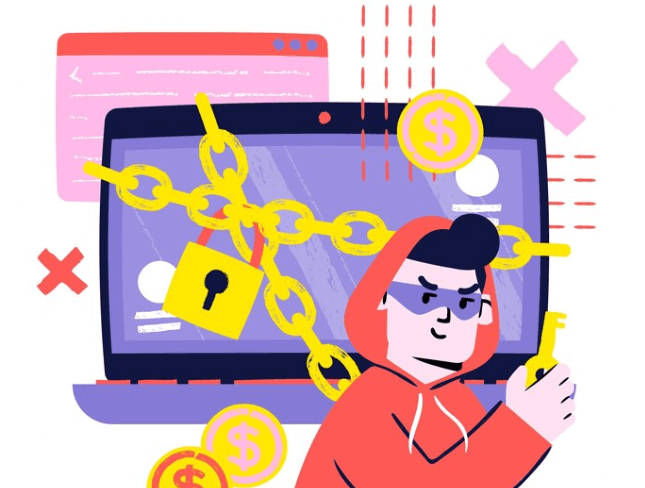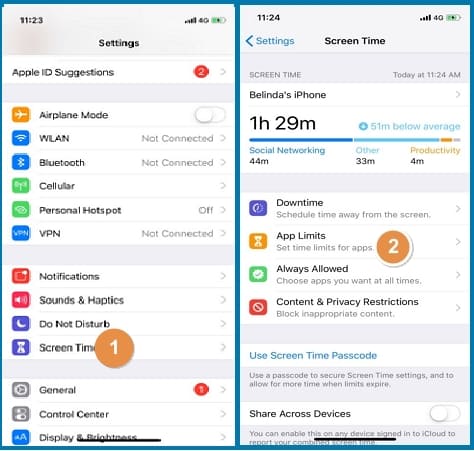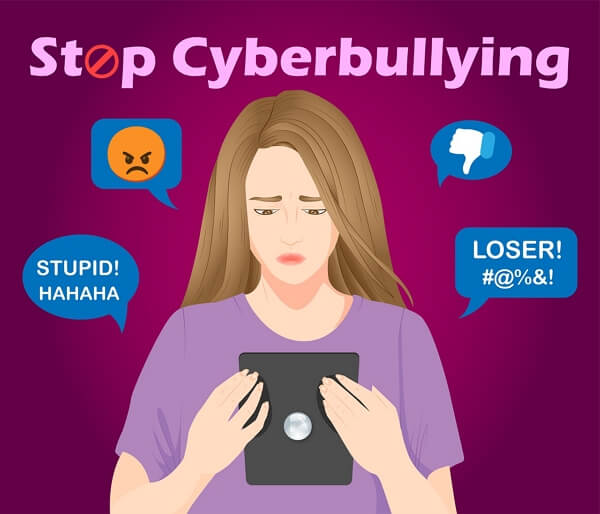
Photo by Sus4n
Cyberbullying is an ever-present and growing issue in today's digital world. This type of bullying occurs on digital media and frequently involves constantly targeting a specific individual with unwelcome and abusive behaviors. The more time we spend online, the more we are exposed to these kinds of malicious activity. This post tries to provide you with advice on being safe online and how to prevent cyberbullying effectively.
Table of Contents
Part 1: The Impact of Cyberbullying
Cyberbullying is not a trivial issue. It can have severe and devastating effects on the victim's mental health. The consequences often include lower self-esteem, increased suicidal ideation, and a variety of emotional responses such as fear, frustration, anger, and sadness. The virtual world's anonymity often emboldens bullies, making it a breeding ground for such destructive behavior.
Part 2: How to Prevent Cyberbullying - 7 Useful Tips
Prevention is always better than cure, especially when it comes to cyberbullying. Here are 7 practical tips that can significantly prevent cyberbullying and reduce the risk of becoming a victim.
1. Manage Online Privacy Settings
Most social media platforms offer privacy settings that allow you to control who can view your profile and posts. Set your account to private and choose carefully who you allow to follow you or be your friend. This will limit the number of people who can interact with you and reduce the risk of encountering a bully.
2. Secure Your Passwords
Protect your online accounts by using strong, unique passwords. Never share your passwords with anyone, not even your closest friends. This will prevent unauthorized access to your accounts.
3. Educate Yourself and Others
Learn about cyberbullying and its effects. Share this knowledge with family, friends, and your community to raise awareness.
4. Teach Digital Literacy Skills
Let yourself and your children develop critical thinking skills towards online content and recognize potential risks. Teach them how to protect their privacy and stay safe online.
5. Don't Retaliate or Respond
Responding to a cyberbully can often escalate the situation. Instead of engaging with the bully, ignore their messages, and report their behavior to the appropriate authorities or platform administrators.
6. Use Blocking Tools
Most social media platforms offer features that allow you to block other users. If you experience bullying, consider blocking the person responsible to prevent further contact.
7. Be Cautious Online
Be mindful of the information you share online. Avoid posting personal information such as your home address, phone number, or school. Remember, everything you put online is potentially accessible to the public.
Part 3: Be Aware of What Your Kids Are Doing Online
As a parent, it's crucial to be aware of your child's online activities. Look for warning signs such as change in mood, reluctance to go to school, secretive online behaviors, and sudden changes in friend groups. Tools like Famiguard Pro, a parental control app, can help you monitor your child's online activities effectively.
How to Set Up Famiguard Pro to Guard Your Kids' Online Safety?
Step 1. Sign Up Free and Pick the Right Subscription Plan. Begin by signing up for Famiguard Pro on the website. You can click the Buy Now button below to choose a suitable subscription plan that fits your family's needs.
Step 2. Download & Install the App on the Target Device. After signing up, follow the guide to download the Famiguard Pro onto your child's device. Android and iOS have different download guides.
Download & Install FamiGuard Pro on Android device:
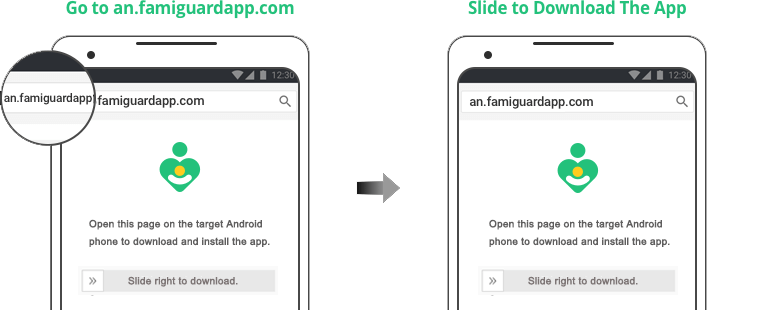

Download FamiGuard Pro on iOS device:
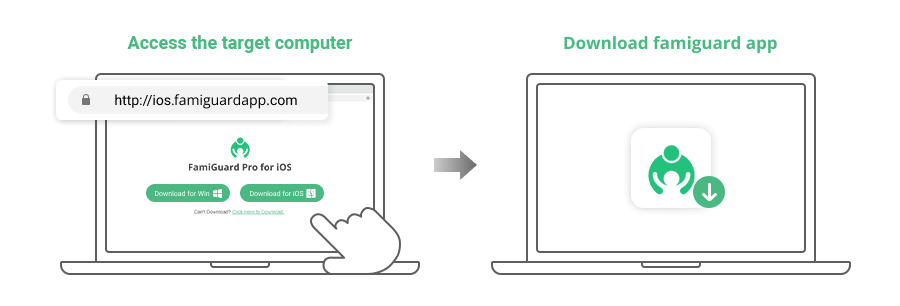
Step 3. Finish Configuration. Once installed, open the app and follow the setup wizard to configure the settings.
Step 4. Set Parental Controls. Once everything is set up, you can start monitoring your child's online activity from the Famiguard Pro dashboard. Here, you can set up parental controls, including content filtering, screen time limits, and app blocking. View reports, track device usage, and receive real-time alerts for any concerning behavior.
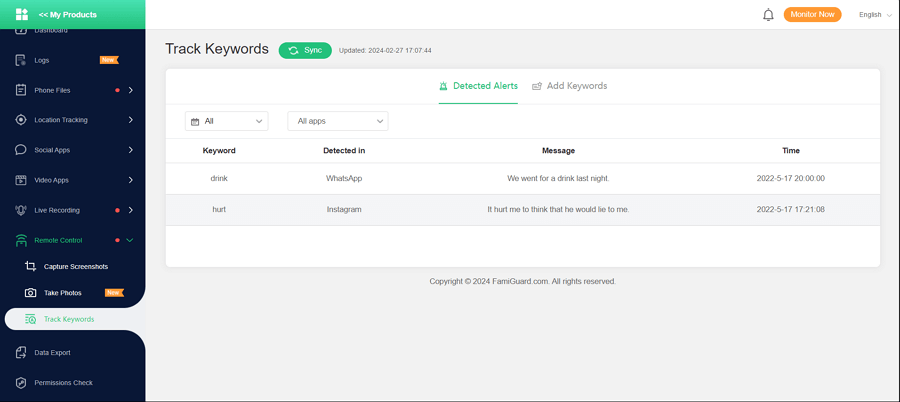
Part 4: What to Do When Cyberbullying Happens
If you or your child becomes a victim of cyberbullying, it's important to take immediate action. Don't respond to the bully, block them, report them to the platform administrators, and contact law enforcement if necessary.
1. Keep Detailed Records
If you encounter any form of cyberbullying, it's important to keep a record of the incidents. Take screenshots, save messages, and document any form of harassment you experience. These records can serve as evidence if you decide to report the bullying to authorities or the platform's administrators.
2. Report to Site Administrators
If you experience cyberbullying on a specific platform, report the incident to the site's administrators. Most platforms have policies against such behavior and can take action against the bully.
3. Look Out for Friends
If you notice that a friend or peer might be a victim of cyberbullying, reach out, and offer support. Encourage them to seek help and report the incident.
4. You Are Not Alone
Remember, you are not alone. Many people have experienced cyberbullying, and there are resources and support networks available to help. Reach out to trusted adults or professional organizations if you need help.
5. Contact Law Enforcement
In severe cases, or if you feel threatened, don't hesitate to contact law enforcement. Cyberbullying can be a form of harassment, which is illegal in many jurisdictions.
Part 5: FAQs about Preventing Cyberbullying
Q1: How can we stop online violence?
Stopping online violence requires a multifaceted approach involving education, enforcement of laws and policies, promotion of digital literacy and empathy, fostering positive online behavior, providing support for victims, and collaborating with internet service providers and social media platforms to address harmful content and behaviors.
Q2: Is cyberbullying prevention effective?
Cyberbullying prevention efforts can be effective when implemented comprehensively and consistently. This includes educating individuals about responsible online behavior, promoting empathy and respect, fostering supportive environments, implementing clear policies and consequences for cyberbullying, and providing support for both victims and perpetrators.
Q3: What are 3 mental effects of cyberbullying?
Three mental effects of cyberbullying include increased stress, anxiety, and depression; decreased self-esteem and confidence; and heightened feelings of isolation and loneliness. Victims of cyberbullying may also experience difficulties in concentration, academic performance, and relationships.
Q4: Why do people abuse others online?
People may abuse others online for various reasons, including seeking power or control over others, expressing frustration or anger, seeking attention or validation, retaliating against perceived slights or conflicts, or simply mimicking behavior observed in online communities. Additionally, anonymity and perceived distance from consequences may lower inhibitions and increase the likelihood of abusive behavior.
Q5: What is the protective factor of cyberbullying?
Protective factors against cyberbullying include strong social support networks, positive relationships with peers and adults, self-confidence and resilience, effective coping skills, a sense of belonging and connection, and digital literacy skills to navigate online environments safely. Additionally, promoting a culture of kindness, empathy, and respect both online and offline can help prevent and mitigate the impact of cyberbullying.
Conclusion
Preventing cyberbullying requires awareness, proactivity, and the right tools. Being informed and vigilant can go a long way in protecting yourself and your kids from online harassment. Investing in tools like Famiguard Pro can provide additional layers of safety, offering peace of mind in the digital world. Remember, you are not alone, and there are resources available to help you navigate and combat cyberbullying.

Amazing Features of FamiGuard Pro for Android
-
Stealth Mode: No app icon appears on the target phone and the monitored person will not detect that you are recording and spying on his phone
-
Remote Control: You can record calls, take pictures and screenshots remotely, without touching the target phone
-
Monitoring Social Media Apps: Viewing messages or pictures on WhatsApp, Tiktok, Facebook, Snapchat, Instagram, Viber, WeChat, and more
-
Keylogger Feature: It has a keylogger feature that records everything typed on the keyboard.

By Tata Davis
professional in software and app technology, skilled in blogging on internet
Thank you for your feedback!


























